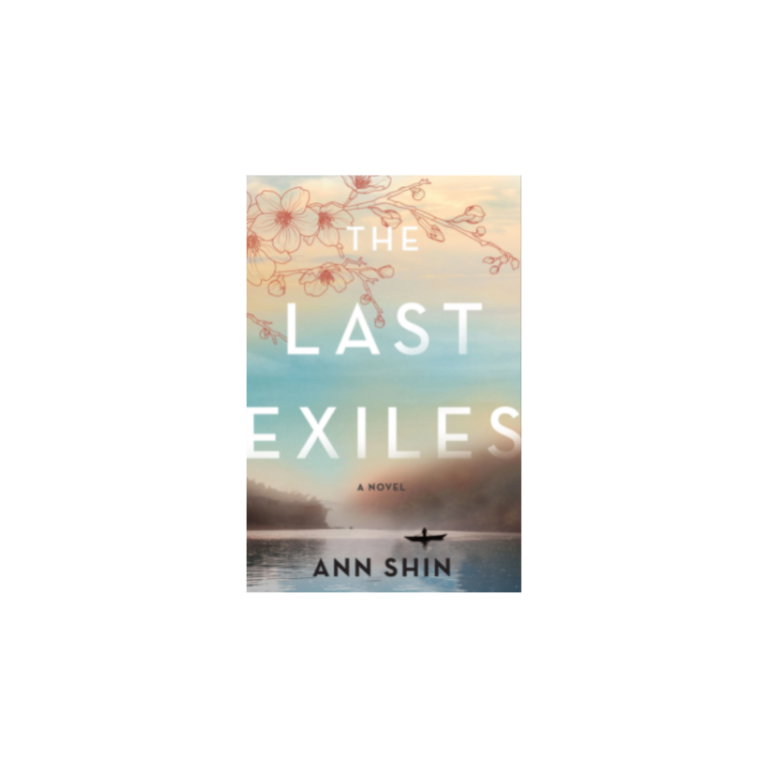Review of The Last Exiles
HarperCollins Canada. 2021. 346 pages.
“This is it, Jin Lee Park. This is our future.” So says Suja, one in the pair of star-crossed lovers at the center of Ann Shin’s debut novel, The Last Exiles. The two are standing on a rooftop, looking out over their immense and magnificent city. The gorgeous view is a gift from Suja to Jin, a symbol of their bright future and her fervent belief that it is theirs for the taking. In the novel, Jin and Suja are university students from different backgrounds. Jin is a scholarship student from a small industrial town while Suja is an ambitious student from a privileged and influential family, and who already has an internship with KCNA, the national news agency. Despite these differences in their background, Jin and Suja have fallen in love and dream of graduating university and starting a life together. Unlike many star-crossed lovers before them, the greatest burden this pair face is not the differences between their family’s social classes but rather another question of birthright: they were both born in North Korea. In The Last Exiles, Shin tells a vivid and gripping story about realizing that the world you once knew intimately is a facade. In what is a critical and highly original debut novel, Shin shows what it takes to pull yourself out of the moral devastation that follows and build a world for yourself anew.
At the beginning of the novel, both Jin and Suja are completely dedicated to North Korea and the Dear Leader. Of the two, Jin, whose family has been on the receiving end of the government’s corrupt policies that allow industrial workers and farmers to struggle and starve, is the most committed. His pursuit of an education and a higher position is motivated by his desire to mitigate the shame he feels about his family background. When Jin steals a bag of cornmeal to feed his family and is sent away to a prison camp, the two are separated and the vision of their future falls apart. Their separation becomes the catalyst for their growing disillusionment with their nation and its values. For Suja, who is certain of Jin’s innocence, the depiction of Jin’s character in the news reveals the propaganda that perpetuates the very news system she has proudly been a part of. For Jin, his experience in the prison camp—he and his fellow prisoners are treated with no dignity and worked close to death—reveals the falsehood of Juche, the North Korean concept of “patriotic self-sufficiency.” After Jin escapes from the prison camp, the two undergo separate but parallel journeys to find one another. In doing so, they also undergo a journey to discover who they are and what they believe in.
Every coming of age story sees its protagonists having to rethink their understanding of the world. The Last Exiles is no different; Jin and Suja’s education is complicated by their having to unlearn the doctrines that were core to their being. Because Jin and Suja have adhered to the values of their nation since birth, their journey goes beyond the traditional childhood to adulthood transition: by abandoning their nation and its beliefs, they’re forced to build their own belief system from the ground up. They do not have the assistance of an older and wiser guide to help them tackle their largest moral queries; because the adults around them are also caught up in the moral compromise that is survival under an oppressive regime, Jin and Suja have to decide for themselves what is right. The challenges of doing so is evident in their disagreement over how far they will go in order to survive. While Jin is willing to make compromises, to play by the rules of the seedy, underground world he has unwillingly been thrust into, for Suja, such compromise is untenable.
The reasons for their differences on this subject may be a result of their different class backgrounds: Whereas Suja’s privileged background has allowed her to believe that survival is guaranteed, Jin is likely intimate with the difficult choices that one has to make in order to survive. Though Shin at times shows how their class differences lead them to different visions of the world, she doesn’t spend too much time interrogating the tension of those differences. While it doesn’t detract from the effectiveness of the novel, it does leave some of the novel’s key questions unanswered.
Unlike many star-crossed lovers before them, Shin wants to give Jin and Suja a happy ending, or at least one where they end up together with an eye to a better future. And she does. The novel concludes on a note of optimistic possibility: while Jin and Suja are together and in Thailand, finally free from the world of trafficking and smuggling that they had been thrown into, they receive the news of the Dear Leader’s death. For Jin and Suja, the news of the leader’s death feels like a promise for a better future—not just for themselves but for the country that they still love dearly. It’s a surprisingly optimistic ending for a novel whose critical questions and depictions of survival, while not pessimistic, are harshly realistic. Shin’s goal may have been to give a glimpse of hope at the conclusion of such a grim story. However, in her optimism, Shin loses the critical edge that makes the rest of the novel such an interesting read.

